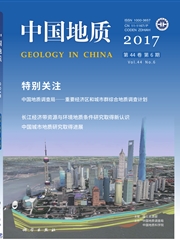

 中文摘要:
中文摘要:
豆荚状铬铁矿是铬的主要来源,是中国的紧缺矿种,因此,寻找一批大型铬铁矿矿床已成为解决我国对铬铁矿长期依赖进口的途经。然而对于豆荚状铬铁矿的成因,一直以来都有较大分歧。豆荚状铬铁矿及其围岩地幔橄榄岩中大量异常地幔矿物的发现,引起了各国地质学家对豆荚状铬铁矿成因的新一轮思考。本文着重讨论近年来国内外学者对豆荚状铬铁矿研究的最新成果和进展,包括豆荚状铬铁矿的形态特征、产出规律、矿物化学、铂族元素(PGE)的分布模式,铬铁矿矿石中出现的超高压矿物,以及围岩地幔橄榄岩的演化过程等等。豆荚状铬铁矿中的铬来源于两种辉石的不一致熔融与副矿物铬尖晶石,其形成环境可能在下地幔或者是过渡带的位置。豆荚状中含铂族元素矿物呈包裹体状和裂隙状分布,铂族元素含量与铬铁矿形成过程中的S饱和程度有关,具有多期性的特征。进而初步地拟定了豆荚状铬铁矿形成过程存在四个阶段,分别为铬的来源阶段、铬尖晶石及超高压矿物的结晶阶段、铬铁矿的成矿阶段、铬铁矿的就位阶段,而每一阶段的特征还需进一步细化与翔实,并且需要对不同岩体不同产出的豆荚状铬铁矿矿床进行详细的对比研究。
 英文摘要:
英文摘要:
Podiform chromitite serves as the main source of chromium and is also the shortage ore species in China; therefore, the discovery of large chromitite deposits has become the first way to solve the long-term dependence on imports. But there is disagreement about the genesis of podiform chromite. With the discovery of many abnormal mantle minerals in podiform chromite and its host mantle peridotite, geologists have rethought the genesis of the podiform chromitite. This paper focuses on the latest achievements and progress in the study of the podiform chromitite both in China and abroad, which include the morphological characteristics of podiform chromitite, output feature, mineral chemistry, the distribution pattern of the platinum group elements (PGE), the UHP minerals in the chromitite, and the host harzburgite evolution. The chromium of podiform chromitite was derived from the incongruent melting of the two types of pyroxene and associated mineral spinel, which might have been formed in an environment of the lower mantle or transition zone. Platinum group element minerals exist as inclusions and fissures in the podiform chromitite, and the content of platinum group elements is related to the S saturation level formation in the process and has multi-phase characteristics. The authors hold that the process of the formation of podiform chromitite consisted of four stages, which were the stage of chromium source derivation, the crystallization stage of spinel and UHP minerals, the chromitite ore-forming stage, and the stage of chromitite seating. It is thought that the characteristics of each stage require further refinement and investigation, and the detailed comparison between different podiform chromitite deposits is necessary.
 同期刊论文项目
同期刊论文项目
 同项目期刊论文
同项目期刊论文
 期刊信息
期刊信息
